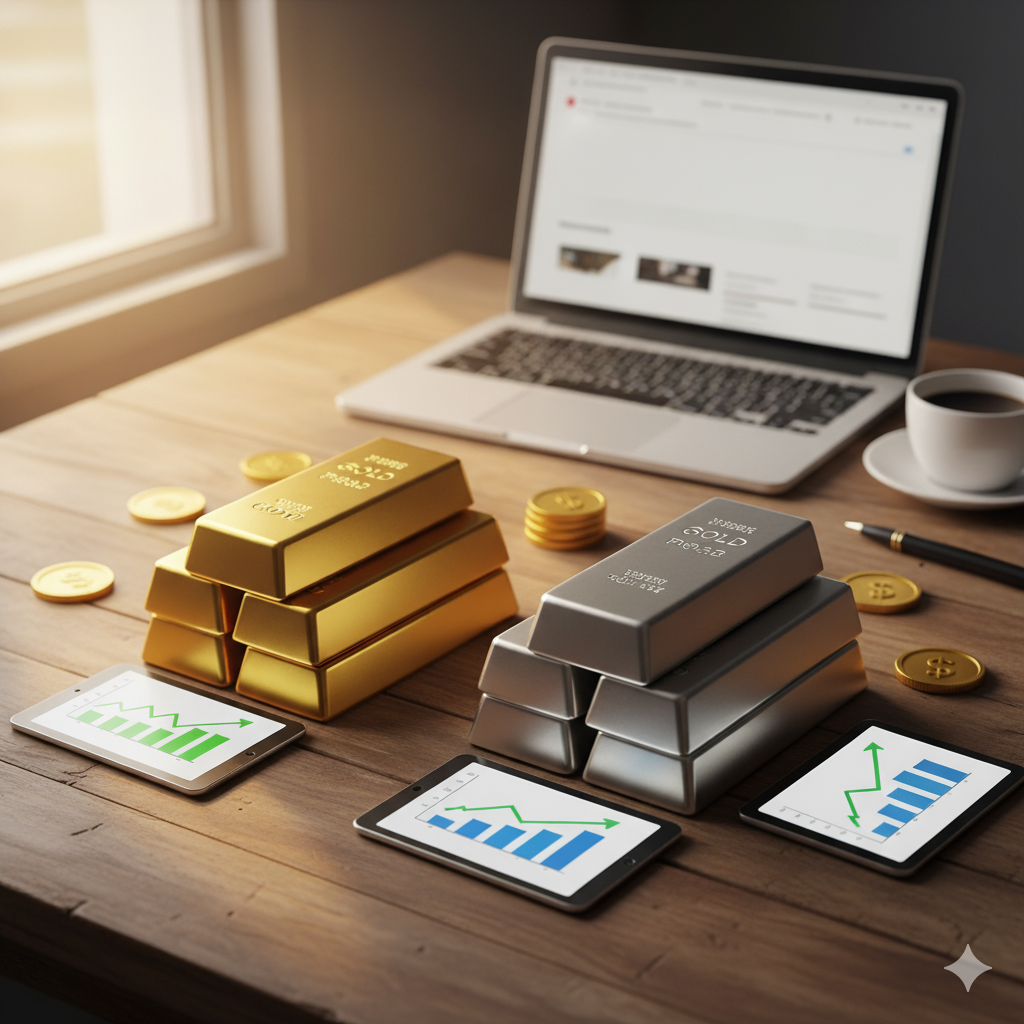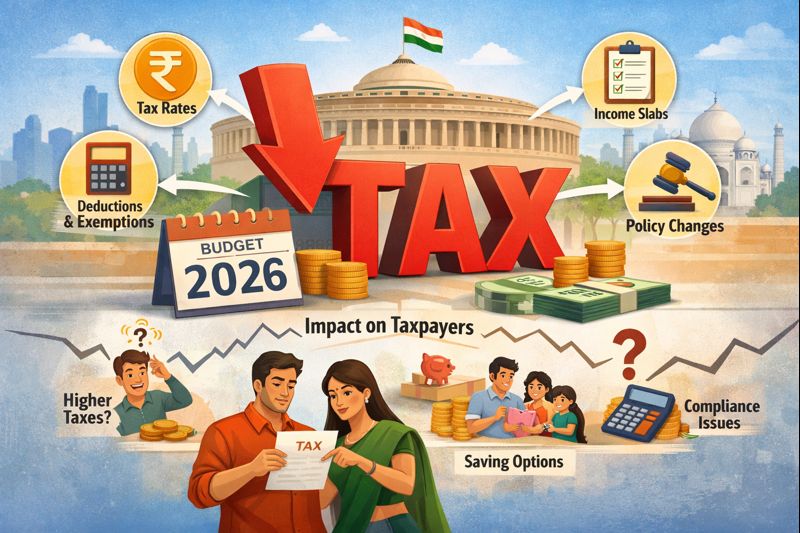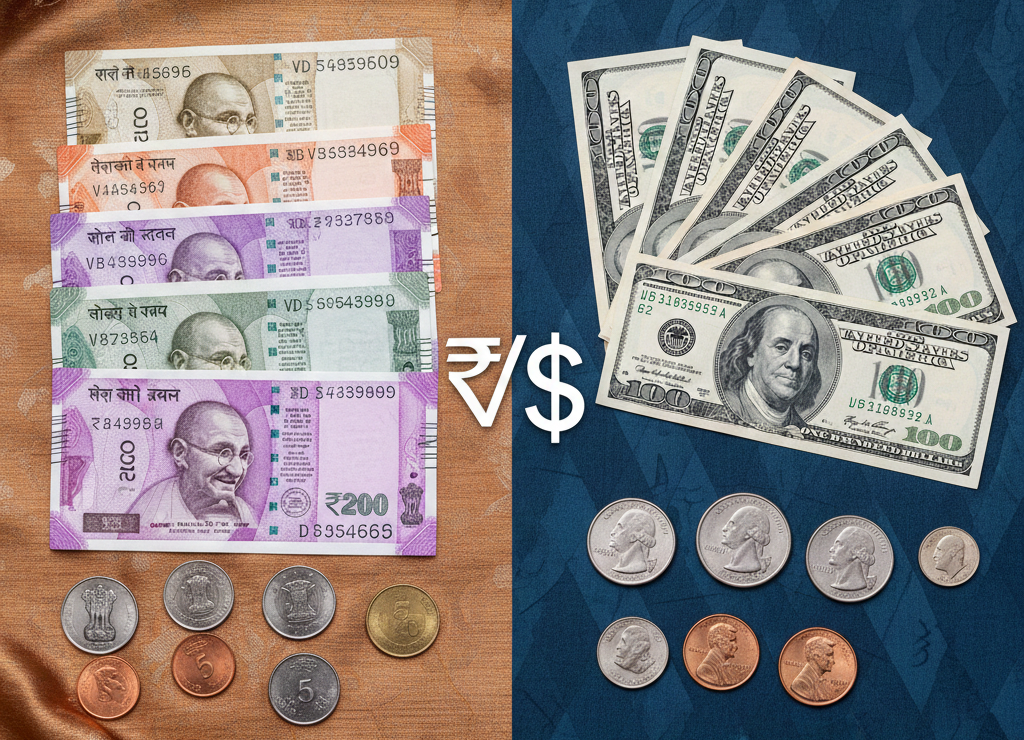When markets are unstable, inflation is rising, or global events create uncertainty, many investors look to precious metals for safety. However, buying physical gold or silver can be difficult because of storage, safety, purity checks, and selling issues. That’s why gold and silver Exchange-Traded Funds (ETFs) have become a convenient and attractive option.
Gold and silver ETFs are becoming popular again as investors look for not just profits but also safety, diversification, and protection against risks. But are these ETFs really the best investments right now? In this Blog, we will take a closer look at the data, current trends, and expert opinions to understand their benefits and risks.
What is a Gold ETF?
A Gold ETF (Exchange-Traded Fund) is an investment option that reflects the market price of gold. Instead of purchasing physical gold in the form of coins or bars, investors can buy Gold ETFs through the stock market, similar to trading shares. Each unit of a Gold ETF represents a specific quantity of gold, usually one gram, which is securely stored by the fund on behalf of investors. These ETFs can be easily bought or sold during market hours, making them a convenient and liquid investment. They offer a simple, safe, and affordable way to invest in gold without the hassle of storage or concerns about purity.
What is a Silver ETF?
A Silver ETF (Exchange-Traded Fund) is a type of investment that mirrors the market price of silver, giving investors an easy way to invest in silver without physically owning or storing it. Each unit of a Silver ETF represents a specific quantity of silver, usually measured in grams, and the fund keeps this silver safely stored in secure vaults. Investors can buy or sell these ETF units on the stock exchange during trading hours, just like regular stocks. This makes Silver ETFs a convenient and efficient way to benefit from silver price movements without dealing with the challenges of physical storage or security.
Key Differences – Gold ETF Vs. Silver ETF
| Feature | Gold ETF | Silver ETF |
| Volatility | Generally more stable | More volatile due to industrial demand |
| Use Case / Demand | Primarily a store of value and safe-haven | Combination of investment and industrial demand |
| Expense & Storage Cost | Lower, as gold has high value per weight | Slightly higher, since silver is bulkier |
| Access & Affordability | Higher per gram cost; fewer small units available | More accessible for small investors |
| Return Potential in Bull Markets | Good, with relatively smoother gains | Higher potential upside, but also higher downside risk |
List of Gold ETFs in India
| ETF Name | Fund Manager / AMC | Key Features / Notes |
| Nippon India ETF Gold BeES (GoldBees) | Nippon India Mutual Fund | Among the largest gold ETFs with high liquidity and a strong track record. |
| HDFC Gold ETF | HDFC Mutual Fund | Shows consistent growth and offers competitive long-term returns. |
| ICICI Prudential Gold ETF | ICICI Prudential Mutual Fund | Known for low expense ratio and close tracking of domestic gold prices. |
| SBI Gold ETF | SBI Mutual Fund | Popular among investors with a large asset base and reliable performance. |
| Kotak Gold ETF | Kotak Mutual Fund | Established ETF with stable returns and solid market reputation. |
| UTI Gold ETF | UTI Mutual Fund | Slightly smaller in size but considered a steady and trustworthy option. |
| Aditya Birla Sun Life Gold ETF | Aditya Birla Sun Life Mutual Fund | Suitable for those preferring mid-sized funds with good consistency. |
| Axis Gold ETF | Axis Mutual Fund | Growing steadily with increasing investor interest. |
| Quantum Gold ETF | Quantum Mutual Fund | A smaller fund is ideal for diversification within a portfolio. |
| Invesco India Gold ETF | Invesco Mutual Fund | One of the smaller ETFs, offering alternative gold exposure. |
| LIC MF Gold ETF | LIC Mutual Fund | A relatively new fund with a smaller asset size compared to its top peers. |
| IDBI Gold ETF | IDBI Mutual Fund | Smallest among the listed options, with limited market capitalization. |
List of Silver ETFs in India
| Silver ETF / Fund Name | Fund Manager / AMC | Key Features / Notes |
| Nippon India Silver ETF (SILVERBEES) | Nippon India Mutual Fund | One of the most popular and actively traded silver ETFs has a large asset base. |
| HDFC Silver ETF | HDFC Mutual Fund | Provides investors with a convenient way to invest digitally in silver prices. |
| Tata Silver ETF | Tata Mutual Fund | An open-ended fund designed to closely track domestic silver price movements. |
| Mirae Asset Silver ETF | Mirae Asset Mutual Fund | Aims to mirror silver price trends in the Indian market effectively. |
| SBI Silver ETF (Fund of Fund) | SBI Mutual Fund | A fund that indirectly invests in silver through an underlying silver ETF. |
Benefits of Investing in Gold ETF and Silver ETF
1. Easy Trading & Liquidity
Gold and silver ETFs are listed on stock exchanges, allowing investors to buy or sell units during market hours just like regular stocks.
2. No Storage Concerns
Investors don’t need to worry about safes, vaults, insurance, or transporting the metals, as the fund takes care of all custody and security.
3. Transparency
ETFs regularly disclose their holdings, costs, storage details, and Net Asset Value (NAV), providing clear insight into the investment.
4. Diversification & Inflation Protection
Gold and silver often move differently from stocks and bonds, which can reduce portfolio risk. They are also widely considered a hedge against inflation or currency depreciation.
5. Affordable Entry
Investors can buy small units of ETFs instead of purchasing large quantities of physical gold or silver, making these investments accessible even with modest capital.
Current Market Trends About Gold and Silver ETFs in India
1. In September 2025, India’s gold ETFs saw record inflows of around USD 902 million, raising the total assets under management (AUM) to approximately USD 10 billion.
2. Meanwhile, several Indian mutual funds, including SBI and UTI, have temporarily halted new subscriptions to their silver ETF Fund of Funds (FoFs) due to rising premiums and valuation challenges.
3. Global factors such as geopolitical tensions, inflation concerns, and expectations of U.S. interest rate cuts have driven gold and silver prices to new highs.
4. Additionally, SEBI, India’s securities regulator, has proposed standardizing valuation norms for gold and silver ETFs to ensure greater uniformity and transparency in the industry.
Reasons Why Gold and Silver ETFs are the Top Choice for Investment?
1. Hedge Against Inflation and Currency Fluctuations
Inflation erodes the value of cash, and precious metals like gold have historically protected wealth over the long term. When interest rates fluctuate or real yields turn negative, investors often turn to gold as a safe haven. Recent trends show strong inflows into gold ETFs, reflecting concerns over inflation and global economic uncertainties.
2. Diversification Amid Market Volatility
With equities facing correction risks, geopolitical tensions, and rate hikes, investors seek assets less correlated with stocks. Gold and silver fit this role perfectly. Silver is driven partly by industrial demand, while gold attracts central banks and investors. Including them in a portfolio can help reduce overall investment risk.
3. Strong Recent Performance
Gold ETFs in India, for instance, saw a fourfold increase in inflows in September 2025. Silver ETFs outperformed even more, sometimes surpassing gold ETF inflows amid rising silver prices. Notably, one silver ETF (Nippon India) delivered roughly 85.7% returns in 2025, demonstrating the metals’ upward momentum.
4. Favorable Supply-Demand Dynamics
Silver faces production constraints and industrial demand from electronics and solar sectors, pushing prices higher. Gold continues to benefit from safe-haven buying and central bank purchases. These structural factors make their prices more resilient to shocks.
5. Advantages of ETFs Over Physical Bullion
ETFs are easier to buy and sell, more liquid, and avoid storage and insurance costs associated with physical gold or silver. In many regions, ETF gains may also enjoy more favorable tax treatment compared to physical metals. (Always verify local tax regulations.)
Final Thoughts
Gold and silver ETFs provide investors with a practical way to gain exposure to precious metals, avoiding many of the challenges associated with holding physical gold or silver, while maintaining liquidity, transparency, and opportunities for portfolio diversification.
However, investors need to be aware of potential tracking discrepancies, fund management fees, and the distinct characteristics of each metal. Gold typically delivers more stable returns supported by institutional demand, whereas silver can offer greater potential gains—but also higher risks—during cyclical market periods.







